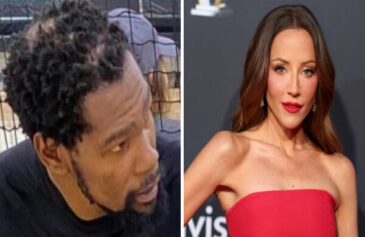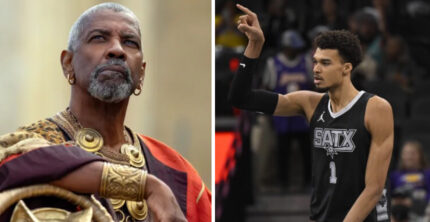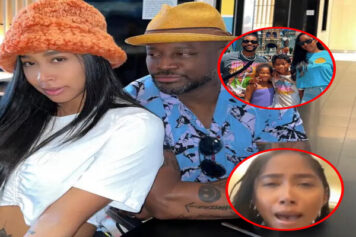KD, Kawhi & Zion all made choices when it came to returning after injury.
It has been said that adults make approximately 35,000 conscious decisions each day.
Which is why the one decision that Kevin Durant made on Monday night, to come back and play after missing 9 games in 32 days due to a calf injury, is so interesting, as it could wind up defining his legacy.
As soon as Game 5 was over on Monday night, the blame game began, even though someone had already made themselves the culprit.
“He was cleared to play tonight,” said Golden State Warriors General Manager Bob Myers as he held back tears during the postgame press conference. “That was a collaborative decision. I don’t believe there’s anybody to blame. I understand this world; if you have to, you can blame me. I run our basketball operations department.
“Kevin Durant loves to play basketball, and the people who questioned whether he wanted to get back to this team are wrong.”
But despite Myers’ tears and his explanation about how much Durant loves to play, the conversation was in full bloom by Tuesday morning.
“That was his call,” said former NBA point guard and current agent B.J. Armstrong on the Rich Eisen Show. “I have a player that I represent currently in Derrick Rose, and those are some of the most difficult conversations that I’ve had because you’re dealing with human nature. The D. Rose character wanted to play, but I had to talk to Derrick Rose because Derrick Rose is the person that has to live with this decision the rest of his life.”
And over on ESPN, Jalen Rose reminded us that he informed us on Friday night that Durant’s workout didn’t work out well for anyone involved.
“Everybody’s fake acting like they care about KD’s best interest when they don’t. It’s phony to me, Rose proclaimed.
Later in the day, Bomani Jones talked about how he “hoped that for Kevin Durant’s own sake that he looked himself in the mirror” and solely made the decision to play during Tuesday’s edition of “High Noon,” while Clinton Yates explained how we “failed the human by trying to help basketball”on “Outside The Lines.”
Much of the conversation has to do with how great Durant is, and what’s at stake this summer with his pending free agency decision. Because if we’re being honest, if Durant was a role player off the bench for the Warriors whose future free agency decision wouldn’t change the balance of power throughout the league, then we wouldn’t even be talking about this.
The stakes are what has elevated this conversation.
But, for those of you that forgot, we’ve been here before.
In February, this was a similar topic of conversation after Zion Williamson busted his Nikes 30 seconds into the first Duke/North Carolina game of the season. As the projected number one pick in next week’s NBA Draft, the masses screamed for Williamson to sit the rest of the season out.
“Every time I turn the TV on, it’s showing that clip and telling me whether I should play or not play,” said Williamson in an interview with SLAM Magazine last month. “I’m not going to let nobody else tell me what I can do with my life. That’s never going to happen. I knew I was coming back the whole time.”
And last season, Kawhi Leonard felt the wrath of his teammates, the Spurs organization, and fans as he decided to shut it down due to multiple injuries even after he was cleared to return.
“It was big,” Leonard recently said to ESPN’s Rachel Nichols about the load management he went through this season due to what happened in San Antonio. “When it got bad, we ended up taking, you know, four or five games off. And, you know, if we didn’t do that, I wouldn’t be here right now.”
“The way we laid out the schedule was good. I’m happy.”
With Durant, it’s about free agency and his legacy. With Williamson, it was about amateurism and money. And with Leonard, it was about pain management and listening to his body.
All three of them, ranging in different ages and in different periods of their careers, made decisions about what they wanted to do with their lives and their bodies.
And that’s the point that’s been ignored in this conversation: Choice.
Now there will be some that will argue that sometimes we need to be saved from ourselves, and that’s something that I agree with.
But what if Durant didn’t come back and the Warriors lost the series, and for the rest of his life it gnawed at him because he knew that he could have possibly changed the outcome?
What if Williamson would have decided to sit the rest of the season out, missing out on what he has called “the best year of my life?”
And what if Leonard did come back last season for the Spurs, got hurt again, and messed up a chance to be in the position he’s in right now, which is being one game away from an NBA championship?
There are always two sides to “what if?”
Just like there are always consequences to the 35,000 decisions we make every day. There’s no way to ever know how things will turn out.
Which is why this conversation will never be complete until Durant alone comes to terms with everything that has come along with the one decision that he willingly made.



